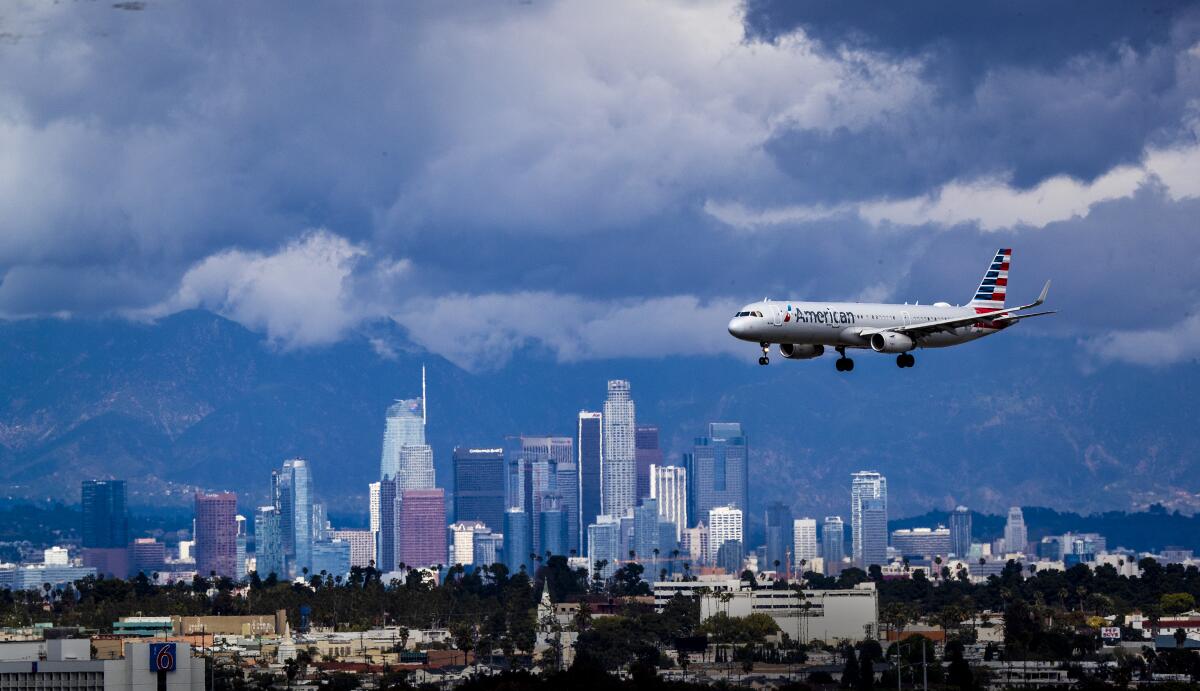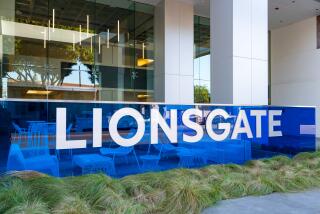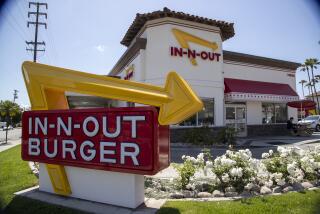More flying changes: American and JetBlue want you to wear a mask

- Share via
As the COVID-19 pandemic decimates demand for air travel, U.S. carriers have taken several unprecedented steps to increase onboard safety. The latest: urging passengers to wear face masks.
The world’s largest carrier, American Airlines, said Monday that passengers will be handed a mask and hand sanitizer when boarding some flights, starting in early May. Travelers will be urged to follow Centers for Disease Control and Prevention guidelines to wear a face mask, but the airline won’t require masks onboard.
“We are looking out for our customers’ well-being to give them peace of mind while they travel with us,” Kurt Stache, American Airlines’ senior vice president of customer experience, said in a statement.
The program will be expanded to all flights based on the supply of masks and sanitizer, airline representatives said.
JetBlue went further, announcing Monday that all passengers will be required to wear face coverings during travel.
“Wearing a face covering isn’t about protecting yourself; it’s about protecting those around you,” said Joanna Geraghty, JetBlue’s president and chief operating officer. “This is the new flying etiquette. Onboard, cabin air is well circulated and cleaned through filters every few minutes, but this is a shared space where we have to be considerate of others.”
American, JetBlue, United, Delta and Frontier airlines have all begun requiring flight attendants to wear masks while performing their duties in the air. Some airlines are requiring masks for all employees who can’t keep six feet away from other workers and passengers.
Atlanta-based Delta Air Lines is employing some maintenance technicians, normally paid to maintain planes, to assemble cloth safety masks for Delta workers, with a goal of making 2,500 masks a week. Some of the material for the masks will come from discontinued T-shirts from Delta’s uniforms.
The changes come only a few days after the Assn. of Flight Attendants wrote to U.S. Transportation Secretary Elaine Chao and Health and Human Services Secretary Alex Azar, requesting that masks be mandated for flight crew, airline employees and passengers. The union represents about 50,000 flight attendants from more than 20 airlines.
In response to that request, Chao suggested on Fox News last week that she would leave it up to the individual airlines to decide if masks for employees or passengers should be required.
“We are encouraging the unions and the management of the airlines to talk to one another, and we are also participating in bring them together and talking about these issues,” she said.
The Federal Aviation Administration on April 17 released a “health and safety guidance” memo that encouraged airlines to complete a safety risk assessment on the procedures for the use of “face coverings as they may affect the donning of oxygen masks.”
Chao noted that spacing between passengers is less challenging today, since only about 4% of seats on U.S. carriers are filled.
The outbreak of the coronavirus has forced 44% of the nation’s airline fleet to be grounded, according to Airlines for America, a trade group for the nation’s carriers. The group estimates that domestic flights are carrying an average of 10 passengers, while international flights are carrying an average of 24.
Among other changes proposed by airlines to help increase the distance between passengers, Delta, United, Alaska and Spirit said they are no longer booking the middle seats in most sections of their planes.
Several airlines have also eliminated or reduced the food and drink services offered on most flights to help slow the spread of the virus.
As demand for air travel drops, several airlines are trying to generate revenue by transporting cargo in the belly of their planes, even when the cabins are empty of passengers. Delta won approval from the FAA last week to stuff cargo in the overhead bins of some wide-body jets.
More to Read
Inside the business of entertainment
The Wide Shot brings you news, analysis and insights on everything from streaming wars to production — and what it all means for the future.
You may occasionally receive promotional content from the Los Angeles Times.











